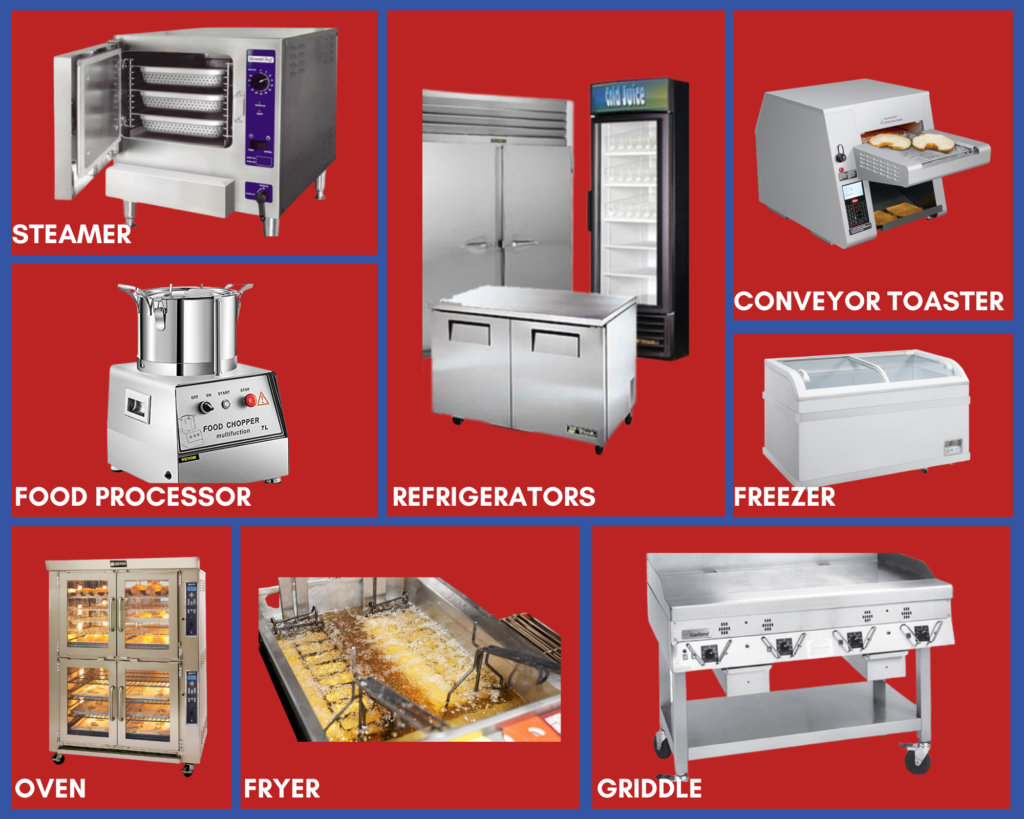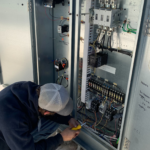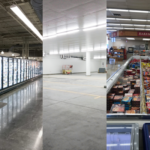Advantages of Commercial Cooking Equipment Maintenance
In business, time is money. Failing to give your equipment the necessary care and maintenance means disallowing your tools to deliver maximum performance. As such, premature wear and tear can mean expensive replacement or repair costs later down the line. Quality cooking equipment is the core of any business within the food industry. Understanding your commercial cooking tools’ average lifespan is crucial in ensuring optimum return on investment. Furthermore, regular commercial cooking equipment maintenance prevents efficiency issues. To keep them up and running, observing best practices in the kitchen is vital.
Checklist of Commercial Cooking Tools That Need Maintenance
Here is a list of the common commercial cooking tools you have to maintain regularly.

Benefits of Cooking Equipment Maintenance
Commercial kitchen equipment, tools, and systems require regular care and maintenance. This prevents the accumulation of grease and food particles from clogging conduits. In addition, here are other notable benefits of routine maintenance and expert care.
Maintenance Ensures Top Performance and Longevity
Commercial cooking equipment upkeep sustains these tools’ efficiency and also lengthen their lifespan. By maintaining your equipment it helps you avoid costly repairs, as well as buying new cooking essentials prematurely. While regular check-ups and maintenance services are additional monthly expenses, poor-performing cooking equipment can cause enormous costs in the long run.
Sustains Service and Food Quality
When your cooking equipment is defective, second-rate, or not well maintained, the quality and taste of food are significantly compromised. It can also affect the time to serve the food. Which can be irritating for customers, and potentially losing them to your nearby competitors. This can also result in negative feedback that can greatly reduce the chance of attracting new customers.
Offers a Safe Environment for your Staff
At all times, the safety and health of your staff should be a priority. When your cooking equipment works appropriately and complies with the health or fire department’s standards, it can prevent the danger of flare-ups that can cause accidents in the kitchen. You can rest assured that everyone is safe by keeping your cooking tools free of dirt, grease, and debris.
Necessary Cooking Equipment Maintenance Tasks
To keep the cooking equipment up and running, observing best practices in the kitchen is essential. Here are some tasks during preventive care:
- Clean the cooking equipment like ovens, grills, and fryers everyday
- Maintain the excellent condition of the deep fat fryer by cleaning it daily.
- Regularly clean the refrigerators to avoid solid matter-induced clogging.
- After use, wash the coffee makers, rice cookers, meat slicers, steamers, and other small equipment you use for food preparation.
- Regular lubrication of the equipment and machine’s motor and moving parts prevents overheating and reduces friction during use.
- Get a professional contractor to remove dirt and grease from the hood, duct, or vent.
- Remove and clean the grease filter at least every week to avoid severe fire incidents.
- Get the automatic extinguishing system inspected every six months by a professional contractor.
Invest in Commercial Cooking Equipment Maintenance
Running a restaurant business requires an investment of money, time, and effort. The cooking equipment is a crucial component of a well-functioning kitchen.
Commercial kitchen equipment servicing by Advanced Commercial mitigates the untimely expense of repairing as well as replacing a piece of equipment. Studies show that an average restaurant spends about 3% to 5% of its sales on maintenance and repairs. With preventive care, they can save 15% to 30% of annual repair fees. Call us today and talk about improving the lifespan of your precious cooking equipment.


